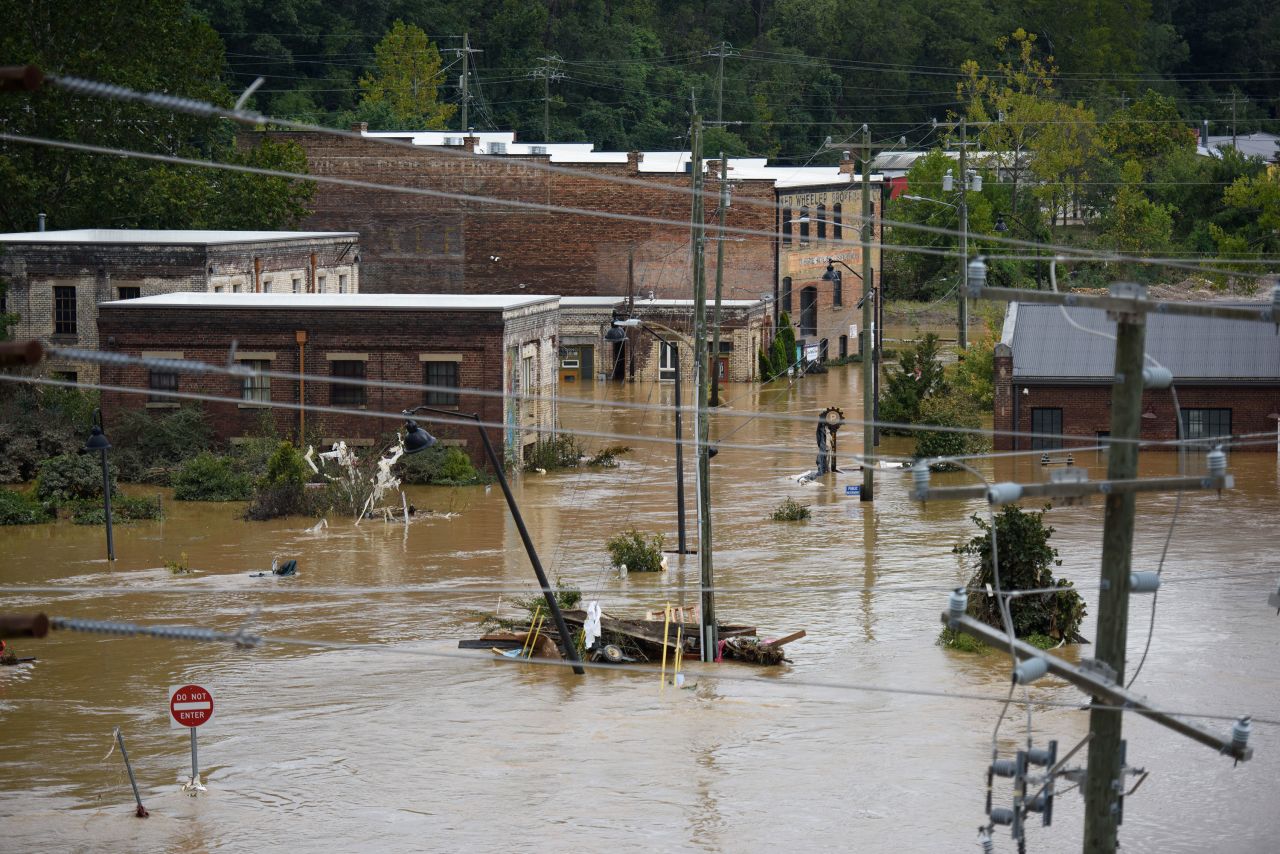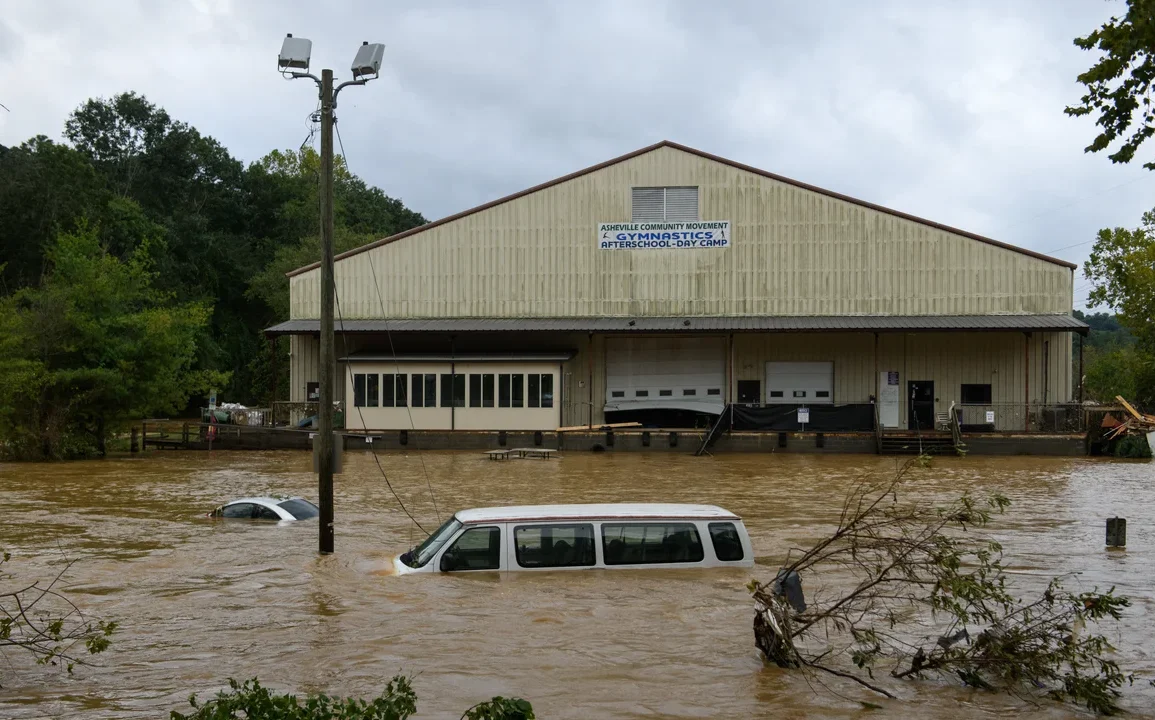Asheville, North Carolina, once promoted as a climate refuge, is now grappling with the devastating effects of Hurricane Helene, which has shattered the illusion of its safety from extreme weather. This city, far from coastal areas, was long considered a haven for those fleeing the threats of hurricanes, floods, and wildfires.
However, Hurricane Helene’s destructive path has shown that no place is immune from the escalating climate crisis. The storm, after making landfall in Florida, triggered catastrophic flooding and widespread devastation in Asheville, killing dozens and leaving many missing.
Residents of Asheville, a city of about 95,000 people, have described the aftermath of the storm as “post-apocalyptic,” with roads torn apart, power lines down, and critical resources like food and water scarce. More than 50 lives were lost in Buncombe County alone, with many people struggling to survive amidst the damage.
This flooding, which reached record levels, has undermined the previously held belief that Asheville was relatively insulated from the worst effects of climate change. The city’s vulnerability to extreme weather has been laid bare, even for those who once considered it a safe haven.

For years, people had been drawn to Asheville, seeking refuge from the increasingly frequent natural disasters elsewhere in the United States. The city had become a hotspot for climate migrants, those fleeing the dangers of wildfires in California, heat waves in Arizona, and coastal flooding in the Carolinas.
Climate experts and residents themselves had bought into the illusion that Asheville’s location, far from the ocean and nestled in the mountains, made it less susceptible to such catastrophic weather events. But experts now acknowledge that global warming is reshaping climate patterns, making every region susceptible to extreme weather.
Asheville’s geography, particularly its location in the foothills of the Blue Ridge Mountains and at the intersection of two major rivers, made it prone to flooding long before Helene. Historical records show that the city has faced severe floods multiple times, including catastrophic events in 1916, 2004, and 2021. Yet, the sheer severity of the flooding caused by Helene took many by surprise.
Climate scientists warn that risks are increasing rapidly, and past experiences are no longer reliable indicators of future events. One study has shown that parts of North Carolina now face once-in-a-century floods every 11 to 25 years due to rising climate risks.
The aftermath of Hurricane Helene has revealed a deeper paradox: while the city faces unprecedented destruction, it may also become an attractive site for real estate developers and investors. The devastation caused by the storm could pave the way for redevelopment projects that may drive up property prices and further gentrify the area.
As people continue to migrate to Asheville, drawn by the hope of escaping climate risks elsewhere, the city’s future remains uncertain. With extreme weather patterns becoming more frequent and unpredictable, the question of where to escape the climate crisis looms larger: there may be no truly safe place left.

